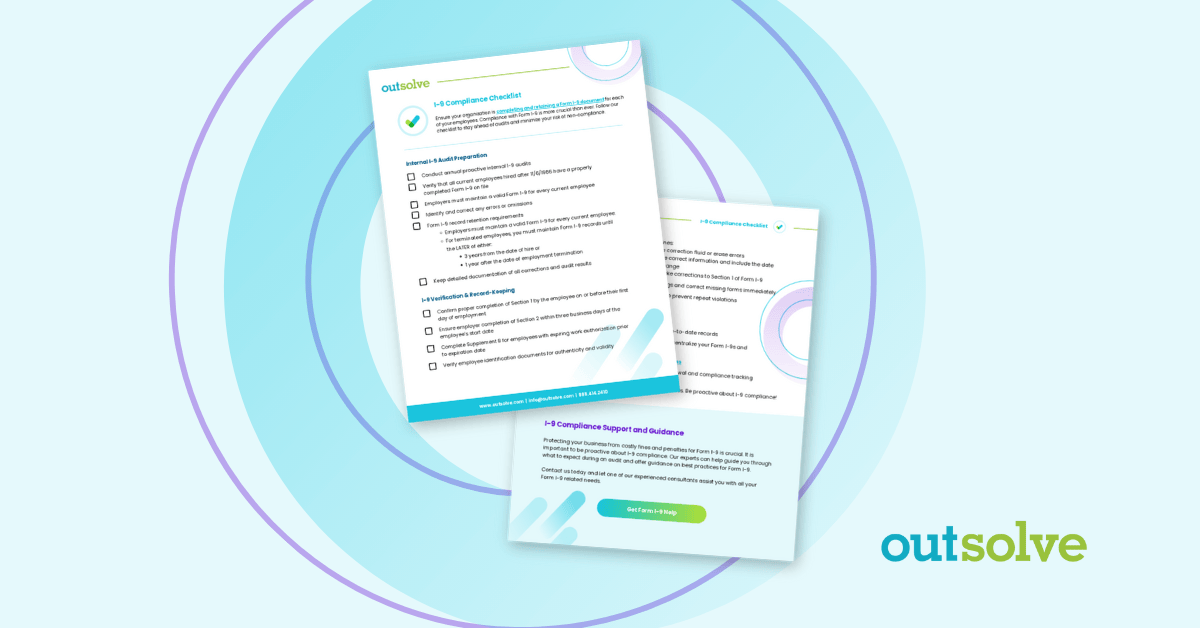1 min read
California Adds FAQs Expanding the Scope of Pay Data Reporting
 Debra Milstein Gardner
:
Apr 3, 2023 1:41:21 PM
Debra Milstein Gardner
:
Apr 3, 2023 1:41:21 PM
.png)
Senate Bill 1162 clarifies CA’s interpretation of the pay transparency, reporting, and record retention requirements, defines “labor contractor employees.”
On January 6, 2023, OutSolve reported on new frequently asked questions (FAQs) which clarified the new pay transparency requirements. Since then, the California Civil Rights Department (CRD) has issued new FAQs specifically to help employers understand the requirements to submit pay data reports on “labor contractor employees.” More information about Senate Bill 1162, can be found in our blog titled “California Senate Bill Increases Pay Data Reporting and Pay Transparency Requirements.”
California updated its FAQs with the following information: If an employer has 100 or more employees employed through labor contractors, they are required to submit a separate pay data report titled “Labor Contractor Employee Report” covering the labor contractor’s employees. They must also disclose the names of all labor contractors used to supply the employees. SB 1162 defines “labor contractor” as “an individual or entity that supplies, either with or without a contract, a client employer with workers to perform labor within the client employer’s usual course of business.” Further guidance indicates that “labor contractor employees” include only workers:
-
On the payroll of the labor contractor.
-
For whom federal social security taxes are withheld from the individual’s wages.
-
Who work for the client employer within the usual course of business.
The law also introduces a new record retention requirement indicating that all employers, regardless of size, maintain records for each employee detailing their job title(s) and wage rate history throughout their employment and for three (3) years after their termination. These records must be available for inspection by the Labor Commissioner upon request.
%20(1).png?width=300&height=80&name=OutSolves%20Take%20(300%20%C3%97%2080%20px)%20(1).png)
Considering that the labor contractor usually maintains the pay data information on the employees, it is up to the employer to obtain this data to submit their reports in compliance with California law. If the labor contractor cannot provide the employer with the pay data, the court has the discretion to assign penalties to the labor contractor. Labor contractors must be informed by employers of their obligation to provide annual pay data.
New resources regarding the state’s Pay Data Reporting requirements are now available. All 2022 Pay Data Reports are due by Wednesday, May 10, 2023. Clients needing assistance in filing the California Pay Data Report or who wish to take preventive measures to evaluate their pay practices can contact OutSolve at info@outsolve.com or by calling 888.414.2410. Further information about OutSolve’s Pay Equity Analysis compliance services (Proactive Compensation Solutions) is also available on the OutSolve website.
Debra Milstein Gardner has worked in the Equal Employment Opportunity (EEO) and Affirmative Action (AA) space for the past 43 years while working in the public and private sectors in various human resources compliance roles. She began her career working for the Equal Employment Opportunity Commission and then went to the Marriott Corporation for nine years working in EEO, Affirmative Action and field human resource roles. In 1990, Debra founded Workplace Dynamics LLC providing EEO, AA, and DEI consulting services to government contractors. In 2016, Debra sold the affirmative action portion of Workplace Dynamics to OutSolve LLC and works part-time as a Market Analyst. Debra is a sports fanatic, routing for the Baltimore Ravens and all Virginia Tech Hokie teams. She loves to hike and boat in her mountain and lake community of Lake Lure, NC.
Weekly OutLook
Featured Posts

5 Key Compliance Items HR Can’t Afford to Ignore

HR Compliance Checklist: What Every HR Pro Needs to Know
Related Posts

I-9 Audit Checklist: Don’t Risk an Audit
Employers continue to be held to a higher standard when it comes to Form I-9 compliance, especially due to increased immigration enforcement and...

outRageous HR: HR Plans vs. Reality: Why Execution Falls Apart (and How to Fix It)
We all know the feeling. In Q4, strategic planning is in full swing, and the roadmap for the upcoming year looks pristine. You have a solid...
.png)
Beat the Rush: Outsource Federal Reporting Requirements in Q1
The beginning of the year usually feels like a fresh start that brings new business initiatives, goals, and strategies. The work you do between...
